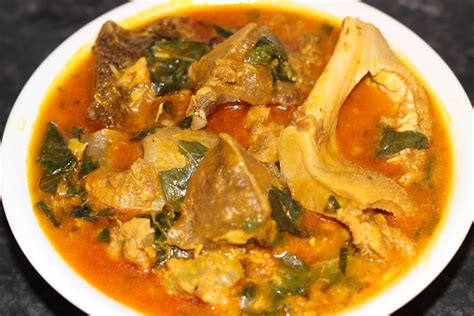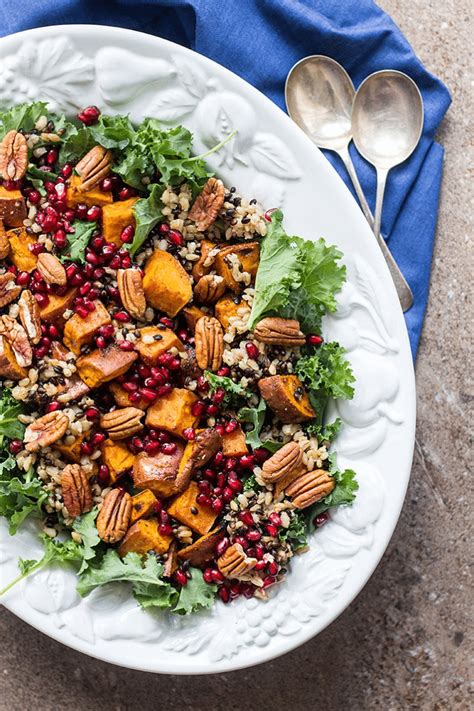Explore the key influences and ingredients in traditional Nigerian cuisine, popular street foods, and authentic cooking techniques in this insightful blog post.
Authentic Nigerian dishes
Contents
Nigerian cuisine is known for its bold flavors, diverse ingredients, and rich cultural influences. When it comes to authentic Nigerian dishes, there are a plethora of options to choose from that truly capture the essence of the country’s culinary heritage. From savory stews to fragrant jollof rice, Nigerian cuisine offers a wealth of delicious and unique dishes that are beloved by both locals and visitors alike.
One of the most iconic Nigerian dishes is egusi soup, a hearty and flavorful stew made with ground melon seeds, leafy greens, and a variety of meats or fish. This dish is a staple in Nigerian households, and its rich, nutty flavor and creamy texture make it a true comfort food.
Another must-try Nigerian dish is suya, a popular street food that consists of skewered and grilled meat, typically seasoned with a spicy peanut-based spice mix. Suya is often served with sliced onions, tomatoes, and spicy chili powder, and it is a favorite snack or quick meal for many Nigerians.
When exploring authentic Nigerian cuisine, it’s impossible to overlook moi moi, a steamed bean pudding that is often enjoyed as a side dish or snack. Made from ground beans, onions, and a blend of spices, moi moi is a versatile and satisfying dish that can be enjoyed on its own or as part of a larger meal.
Finally, no discussion of authentic Nigerian dishes would be complete without mentioning ofada rice and ayamase stew. This dish features locally grown ofada rice served with a spicy, savory stew made from green bell peppers, scotch bonnet peppers, and a mix of meats. The result is a delicious and comforting meal that perfectly encapsulates the vibrant flavors of Nigerian cuisine.
Influences on Nigerian cuisine
Nigerian cuisine is a rich and diverse mix of flavors and cooking styles that have been influenced by a variety of factors. One of the primary influences on Nigerian cuisine is the country’s history of trade and colonization. Over the centuries, Nigerian food has been shaped by interactions with different cultures, including Portuguese, Dutch, and British influences. These interactions have brought a diverse range of ingredients and cooking techniques to Nigeria, which have been incorporated into traditional Nigerian dishes.
Another important influence on Nigerian cuisine is the country’s geography and climate. Nigeria is a large and diverse country, with various regions that have their own unique culinary traditions. The coastal regions, for example, are known for their use of seafood and coconut in dishes, while the northern regions are more likely to feature dishes made with grains and meats. The availability of different ingredients and the local climate have played a significant role in shaping the flavors and ingredients used in Nigerian cooking.
Additionally, the influence of neighboring countries has also had a significant impact on Nigerian cuisine. Nigeria shares borders with several other West African countries, such as Benin, Cameroon, and Chad, and the culinary traditions of these countries have influenced Nigerian cooking. Ingredients and cooking techniques have been exchanged and adapted, leading to the creation of new and unique dishes that reflect the cross-cultural influences of the region.
Furthermore, the influence of Nigeria’s diverse ethnic groups has also played a role in shaping the country’s cuisine. Each ethnic group in Nigeria has its own traditional dishes and cooking methods, and these have all contributed to the rich tapestry of Nigerian cuisine. The blending of different traditions and flavors has resulted in the creation of dishes that are both traditional and innovative, showcasing the diverse influences that have shaped Nigerian cooking.
In conclusion, Nigerian cuisine has been influenced by a variety of factors, including historical trade and colonization, geography and climate, neighboring countries, and the country’s diverse ethnic groups. These influences have all contributed to the rich and diverse flavors of Nigerian dishes, making the cuisine a reflection of the country’s history and cultural heritage.
Key ingredients in Nigerian recipes
When it comes to Nigerian cuisine, there are several key ingredients that are commonly used in recipes. These ingredients not only provide the unique flavors and tastes that define Nigerian dishes, but they also hold cultural and historical significance for the Nigerian people.
One of the most important ingredients in Nigerian recipes is palm oil. This vibrant red oil is derived from the fruit of the oil palm tree and is used in a wide variety of Nigerian dishes, including soups, stews, and sauces. Its rich, earthy flavor adds depth and complexity to many traditional Nigerian recipes.
Yams are another essential ingredient in Nigerian cooking. Yams are a staple crop in Nigeria, and they are used to make fufu, a popular starchy side dish that is often served alongside soups and stews. Yams are also used to make pounded yam, a traditional Nigerian dish that is made by boiling and pounding yam until it reaches a smooth, dough-like consistency.
Chili peppers are widely used in Nigerian cuisine to add heat and spice to dishes. Whether fresh, dried, or ground into a powder, chili peppers are a key ingredient in many Nigerian recipes, including soups, sauces, and snacks. The use of chili peppers in Nigerian cooking is a reflection of the country’s diverse and vibrant culinary heritage.
Another important ingredient in Nigerian recipes is garri, a coarse flour made from cassava. Garri is a versatile ingredient that is used to make a wide range of Nigerian dishes, including eba, a popular starchy side dish, and gari soakings, a tasty snack made by soaking garri in water and adding sugar or milk.
Popular Nigerian street foods
Nigeria is a country known for its diverse and flavorful cuisine, and its street foods are no exception. The street foods of Nigeria are a crucial part of the culinary experience in the country, offering a wide variety of delicious and convenient options for locals and visitors alike. From spicy snacks to sweet treats, there is something for everyone to enjoy on the bustling streets of Nigeria.
One of the most popular street foods in Nigeria is suya, which is a spicy skewered meat dish. Typically made with beef, chicken, or goat, suya is seasoned with a blend of spices, including ground peanuts, and grilled to perfection. The result is a flavorful and tender meat that is often served with sliced onions, tomatoes, and spicy pepper sauce.
Another beloved street food in Nigeria is akara, which are deep-fried bean fritters. Made from a mixture of black-eyed peas, onions, and spices, akara are crispy on the outside and soft on the inside. They are often eaten for breakfast or as a snack throughout the day, and are best enjoyed with a side of spicy pepper sauce.
Fried plantains, known as dodo, are also a common sight on the streets of Nigeria. These golden, caramelized slices of plantains are a beloved snack for many, offering a perfect balance of sweetness and crispiness. Whether eaten on their own or paired with other dishes, dodo are a tasty and satisfying street food option.
Last but not least, puff-puff is a popular Nigerian street food that satisfies the sweet tooth. These deep-fried dough balls are made from a simple batter of flour, sugar, yeast, and water, and are often flavored with nutmeg or other spices. Puff-puff are enjoyed by people of all ages and are perfect for satisfying cravings for something sweet while on the go.
Traditional Nigerian cooking techniques
Traditional Nigerian cooking techniques are deeply rooted in the country’s rich cultural heritage and can vary significantly depending on the region and ethnic group. One of the most common cooking techniques in Nigeria is grilling, which is often used to prepare meats, fish, and vegetables. The use of open flames and charcoal grills imparts a unique smoky flavor to the food, making it a popular choice for many traditional Nigerian dishes.
Another popular cooking technique in Nigeria is boiling, which is used to cook a wide variety of ingredients such as yams, plantains, and vegetables. Boiling is often paired with stews and sauces, creating hearty and flavorful dishes that are enjoyed throughout the country. Additionally, steaming is commonly used to cook rice, beans, and other grains, resulting in fluffy and perfectly cooked grains that are a staple in Nigerian cuisine.
Stir-frying is also a commonly used cooking technique in Nigeria, particularly in the preparation of quick and flavorful dishes. This method involves cooking ingredients in a small amount of oil over high heat, resulting in dishes that are both tender and crisp. Stir-frying is often used to cook vegetables, meats, and seafood, and it allows for the preservation of the natural flavors and textures of the ingredients.
In addition to these techniques, smoking is an important traditional cooking method in Nigeria, particularly for preserving fish and meat. This method involves curing the ingredients with salt and then exposing them to smoke from burning wood or charcoal. The resulting smoked products are often used to add depth and richness to stews, soups, and sauces, and are prized for their distinct flavor profiles.











